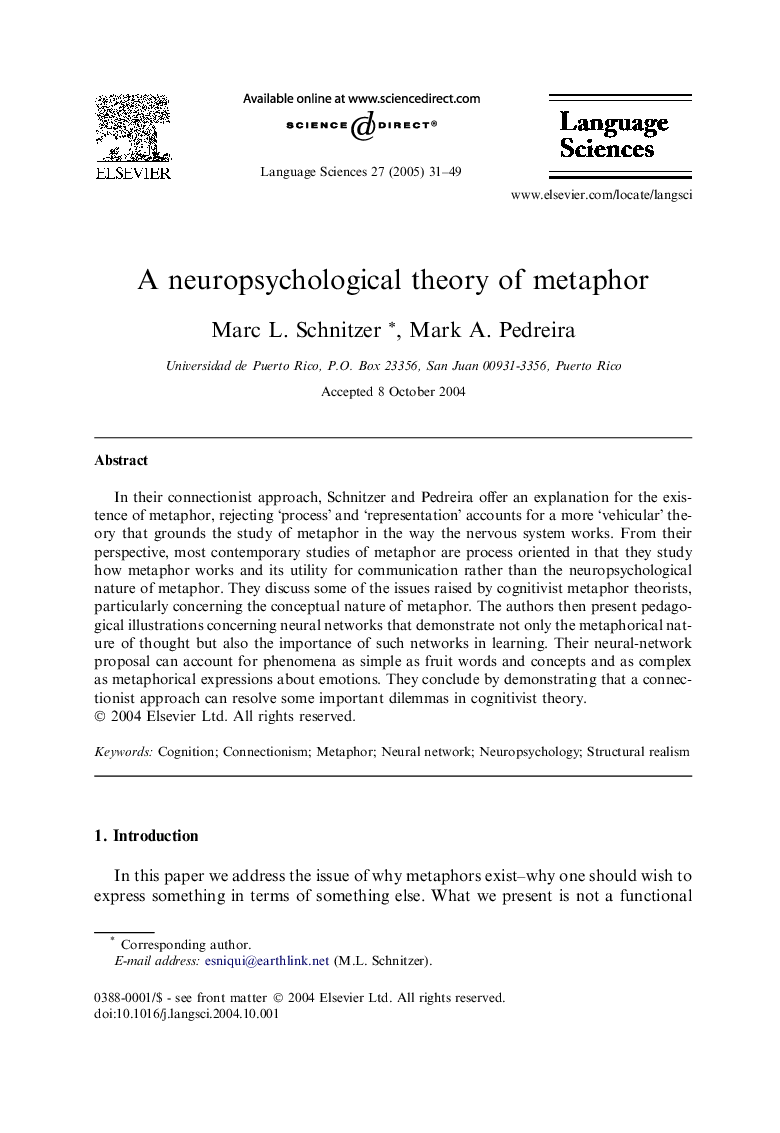| Article ID | Journal | Published Year | Pages | File Type |
|---|---|---|---|---|
| 10520145 | Language Sciences | 2005 | 19 Pages |
Abstract
In their connectionist approach, Schnitzer and Pedreira offer an explanation for the existence of metaphor, rejecting 'process' and 'representation' accounts for a more 'vehicular' theory that grounds the study of metaphor in the way the nervous system works. From their perspective, most contemporary studies of metaphor are process oriented in that they study how metaphor works and its utility for communication rather than the neuropsychological nature of metaphor. They discuss some of the issues raised by cognitivist metaphor theorists, particularly concerning the conceptual nature of metaphor. The authors then present pedagogical illustrations concerning neural networks that demonstrate not only the metaphorical nature of thought but also the importance of such networks in learning. Their neural-network proposal can account for phenomena as simple as fruit words and concepts and as complex as metaphorical expressions about emotions. They conclude by demonstrating that a connectionist approach can resolve some important dilemmas in cognitivist theory.
Related Topics
Social Sciences and Humanities
Arts and Humanities
Language and Linguistics
Authors
Marc L. Schnitzer, Mark A. Pedreira,
